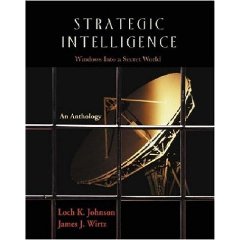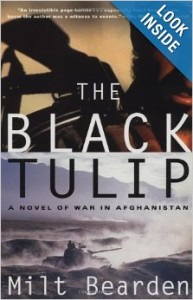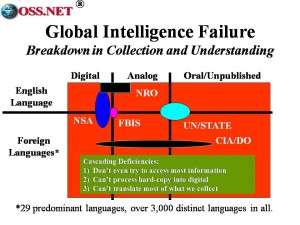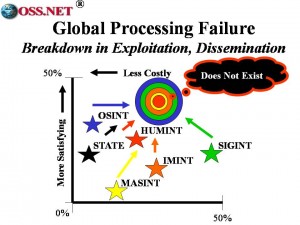Edit of 20 Jan 08 to add links and comment on movie/DVD
Comment on movie: 4 stars for being good enough, three stars for not covering all that could be covered. See the movie, then read the book. The movie captures the idiocy of US Government funding war but not peace, and the sophmoric manner in which CIA bureaucrats play at war (but see JAWBREAKER and First In for “done right,” but it does not capture the war between the US diplomats and the spies, nor does it capture the extraordinary complexity of Pakistan, its own spy service, and the unconquerable Waziristan region (which could, however, be useful nuked). Links at end of review.
I was wrong to dismiss this book when it first came out, and I stress this because the hype about a hard-drinking womanizing “loose cannon” of a Congressman is precisely what the Washington bluebloods want us to think. This is one of my “top five” for understanding Washington. In alphabetical order, here are the key points.
Admin: Constant reference to case officers as “agents” is irritating.
Agency for International Development: featured as “the other Agency” whose feats on the humanitarian front are vital.
Analysis: CIA analysis was constantly flawed because of its reliance on technical collection or foreign liaison reporting. Examples of actual human observation of Egyptian arms failures made the point that there is no substitute for the human case officer in the field.
Bureaucracy: CIA bluebloods were timid–“bureaucratic cowardice” is a term seen several times–and so were the AID leaders, the Pentagon, the State Department, and even the White House. CIA did not want more money for Afghanistan, was at war with the State Department, did what it could to slander and undermine Congressman Wilson, was slow in every respect (“what we did with Charlie in one month would have taken us nine years to accomplish [through normal channels].”
Central America. Although not the main thrust of the book, the comparisons between the secret success in Afghanistan and the public failure of the CIA in Central America are useful.
Congress. The book is a case study of how Congressional power really works, where less than 25 Members on the House side actually matter when it comes to defense appropriations. Pages 79-80, on the various Congressional fraternities, are quite useful.
Corruption. The main character in the book other than Charlie Wilson, Gust Avrakotos, gets high marks for cutting the cost of arms and ammo in half by out-smarting the black market, and for devising clever ways to monitor for corruption, such as technical beacons in the arms shipments that can be monitored from satellites.
Cost of War. $165 for an AK-47, $1,050 per man per year for ammunition, cost of keeping 100,000 holy warriors firing for one year comes to $100 million. That is without providing for all other costs such as anti-air weapons, anti-tank weapons, food, communications, medical, and logistics. At least $1.5 billion in US funds was being spent at the height of the war, with Saudis matching this amount.
Covert Action: The US did not really get credit from the warriors being armed, because it was all done through Pakistan. Assassination and other dirty tricks are indeed a part of CIA's repertoire, they just get the British and Egyptians and Pakistanis to do the work for them, thus circumventing US laws and internal regulations.
Education. The role that Congressman Wilson played in educating other Members cannot be under-estimated. The bureaucracy cannot be trusted to properly educate Members, and that in the absence of a strong and sustained educational endeavor, Members will continue to be oblivious to reality overseas.
Foreign Countries. China, Egypt, India, Saudi Arabia, and the United Kingdom are featured players, apart from Pakistan. The impoverishment of the British secret service, begging the Americans for a few mine-detectors, is of note.
Israel. Israel is in a class by itself. American Jews funded Charlie Wilson's survival and Israel empowered him in multiple ways. It is a real irony of this book that Israel was the key factor in creating the armed Islamic jihad movement, with consequences no one anticipated.
Lawyers. Page 165 and throughout the book document the essential castration of the CIA by its own lawyers. As Avrakotos is quoted in the book: “If I asked them they would have jerked off for three months trying to figure out why we couldn't do it.”
Liberals. Paul Tsongas and Charlie Wilson, both liberals, supported the Afghanistan effort long before any conservatives were willing to step up to the plate.
Lobbying. The book is a handbook on both domestic lobbying through Texas socialites associated with the extreme right, and foreign lobbying of Members by both foreign governments and very rich extreme rightists who use Parisian aristocracy and others to push through programs that go against all the bureaucratic instincts of CIA, the Pentagon, and the State Department.
Operations. The book documents some severe shortfalls in CIA's operational capabilities, including a great quote: “Out of twenty-five hundred [case officers]…maybe five percent are super, twenty percent good, and five percent shot.” [Note: this leaves 70% in a dead zone.] The incompetence of the CIA's covert procurement process is of special concern.
People. Book damns the Ivy League bluebloods, Stansfield Turner (who not only killed operations, but fired mostly the blue collar ethnics that were actually good on the street). It honors the CIA “untouchables”, the worker bees, mostly people of color with high school educations, that keep the place going. It documents how Mike Vickers, a GS-11 that masterminded the victory, gave up on CIA and left for the Wharton school because there was no future for him at the agency.
Trade-Offs. The book explicitly documents how the White House gave Pakistan its blessing on continuing with an Islamic nuclear bomb, as the quid pro quo for supporting the jihad against the Soviets.
Tribal Knowledge. The book documents the CIA's abysmal lack of understanding, which continues today, of tribal personalities and power relationships, history, and context.
Variables. Training and communications made a huge difference, and together with anti-aircraft weapons, took the war against the Soviets from a “fool's errand” level (CIA providing Enfield rifles and limited ammunition) to a “real war” level.
White House. The book provides a reminder of how easily the White House neophytes fall for thieves and liars. The discussion of the damage done by Manucher Ghorbanifar is so like that done by Chalabi's access to Cheney that the comparison is chilling. CIA blacklisted both for very good reasons, and the White House still embraced them.
This is gripping non-fiction, better than any spy novel.
CIA Done Right:
First In: An Insider's Account of How the CIA Spearheaded the War on Terror in Afghanistan
Jawbreaker: The Attack on Bin Laden and Al Qaeda: A Personal Account by the CIA's Key Field Commander
CIA Normal:
Legacy of Ashes: The History of the CIA
Web of Deceit: The History of Western complicity in Iraq, from Churchill to Kennedy to George W. Bush
None So Blind: A Personal Account of the Intelligence Failure in Vietnam
Who the Hell Are We Fighting?: The Story of Sam Adams and the Vietnam Intelligence Wars
Policy Evil:
Vice: Dick Cheney and the Hijacking of the American Presidency
A Pretext for War : 9/11, Iraq, and the Abuse of America's Intelligence Agencies
9/11 Synthetic Terror: Made in USA, Fourth Edition
Semiunal Non-Fiction (Damns Spending $60B/year on the 4% we can steal:
On Intelligence: Spies and Secrecy in an Open World












